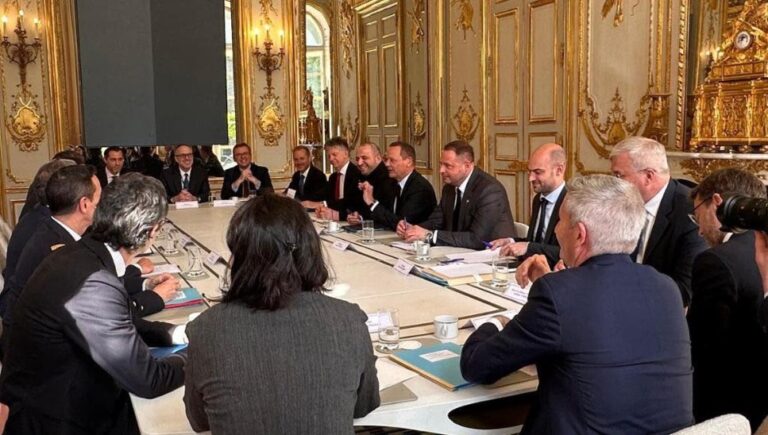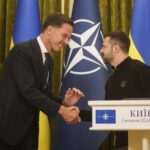The U.S. has privately floated the possibility of Ukraine accepting the de facto loss of some of its territories—especially Crimea—as part of a ceasefire or peace proposal with Russia during negotiations in London, UK.This approach reflects growing fatigue in Washington but represents a dangerous gamble for U.S. strategic credibility, international law, and global norms.
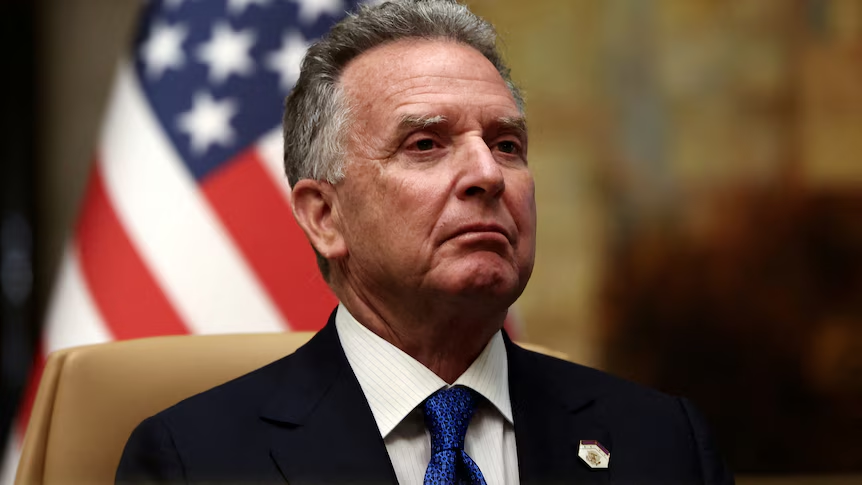
I. The Strategic Risk to U.S. Interests
- Global Credibility Undermined
- Any U.S.-backed recognition of Russian occupation signals retreat from the defense of sovereignty and democratic allies.
- Allies like Taiwan, South Korea, and even NATO members on Russia’s border may perceive the U.S. as unreliable under pressure, undermining deterrence.
- Rewarding Aggression
- Legitimizing territorial conquest contradicts decades of U.S. doctrine that prohibits acquisition of territory by force (e.g., Iraq-Kuwait, 1990).
- It emboldens other authoritarian states, especially China, to pursue military solutions to disputes (e.g., Taiwan, South China Sea).
- Political Fallout at Home
- The decision risks backlash from both major U.S. parties: Democrats over betrayal of democratic values, Republicans over surrender to Putin.
- It may become a 2024/2028 campaign issue, damaging U.S. unity on foreign policy.
II. Consequences for International Law
- Violation of the UN Charter
- The move violates Article 2(4) of the UN Charter, which prohibits the use of force against the territorial integrity of states.
- Sets a precedent that peace agreements can override foundational principles of sovereignty.
- Undermining the Norm of Non-Recognition
- Since 1945, the international community has maintained a non-recognition doctrine on illegal occupations (e.g., Northern Cyprus, Israeli settlements, Crimea itself since 2014).
- U.S. endorsement of Russia’s claim to Ukrainian land would collapse this principle, weakening law-based order.
- Dangerous Historical Parallels
- Appeasement precedents: Munich Agreement (1938) or Yalta (1945), where great powers negotiated away smaller nations’ sovereignty.
- May encourage future “bargain” invasions under the assumption that military facts on the ground will be legitimized later.
III. Consequences for the Global Order
- Destabilization in Other Regions
- Sets a template for:
- China and Taiwan: military takeover followed by pressured recognition.
- Iran in the Gulf, Turkey in northern Syria, or Azerbaijan in Armenia.
- This feeds a “might makes right” worldview, replacing rules with raw power politics.
- Sets a template for:
- Erosion of U.S.-Led Alliances
- NATO members might lose faith in U.S. commitment to defending front-line states.
- Countries like Poland, the Baltics, or even non-NATO allies (e.g., Japan) could seek their own nuclear deterrents or shift toward more independent security policies.
- Strengthening of Authoritarian Blocs
- Russia and China will exploit such a decision as a sign of Western decline and moral weakness.
- This boosts BRICS-type institutions and anti-Western multilateral forums.
IV. Ukrainian Perspective and the Risk of Division
- Ukraine has made it clear that any recognition of occupied land is unacceptable.
- The U.S. proposal, if confirmed, could fracture Ukrainian trust in Western security guarantees.
- Potential internal Ukrainian division: between a leadership pressured to concede and a population unwilling to surrender sovereignty.
V. Alternative U.S. Strategy
- Reinforce that no recognition of territorial loss will occur under occupation.
- Increase aid with conditions on anti-corruption, reform, and Western alignment, but not at the cost of territorial integrity.
- Launch a global diplomatic offensive to reaffirm non-recognition norms and pressure Russia via sanctions, economic isolation, and legal instruments (e.g., ICC, ICJ).
Conclusion
The U.S. proposing to legitimize Russia’s occupation of Ukrainian land is more than a tactical misstep—it is a strategic error that undermines international law, weakens alliances, and emboldens global authoritarianism. Far from ending the war, such a decision could open the floodgates to a world where borders are drawn by tanks, not treaties.
VI. Historical Parallels: The Perils of Appeasement and Recognition of Aggression
Understanding past cases where great powers attempted to settle conflicts by recognizing illegal occupations or trading away territories is key to evaluating today’s risks. The lessons are often sobering.
1. The Munich Agreement (1938)
- What happened: Britain and France allowed Nazi Germany to annex the Sudetenland from Czechoslovakia, arguing it would “appease” Hitler and preserve peace.
- Outcome:
- Hitler saw Western acquiescence as weakness and soon invaded all of Czechoslovakia, then Poland.
- World War II followed within a year.
- Parallel:
- Just like Russia claims to protect “Russian speakers” in Ukraine, Hitler claimed to protect “ethnic Germans.”
- U.S. legitimization of Russian land grabs would echo Munich—sacrificing a smaller nation’s sovereignty for perceived peace, and inviting further aggression.
2. The Yalta Conference (1945)
- What happened: Roosevelt, Churchill, and Stalin divided post-war Europe, allowing Soviet dominance over Eastern Europe, including Poland and the Baltics.
- Outcome:
- Led to the Cold War, Soviet repression, and the Iron Curtain for nearly 50 years.
- Parallel:
- U.S. pursuit of “pragmatism” at Ukraine’s expense recalls Yalta-style geopolitics where great powers decide fates of smaller nations without their consent.
3. U.S. Recognition of Israel’s Annexation of the Golan Heights (2019)
- What happened: The Trump administration recognized Israeli sovereignty over the Golan Heights (seized from Syria in 1967).
- Outcome:
- Widely condemned as violating UN Resolution 242 and international law.
- Cited by Russia to justify its claim on Crimea, arguing the U.S. set the precedent.
- Parallel:
- While different in context, this showed how legal double standards erode U.S. credibility and are used by rivals to justify aggression.
4. The Invasion and Partition of Cyprus (1974)
- What happened: Turkey invaded northern Cyprus and established the self-declared Turkish Republic of Northern Cyprus.
- Outcome:
- To this day, only Turkey recognizes this entity. The international community still supports Cypriot territorial integrity.
- Parallel:
- Shows that decades of non-recognition can maintain international legal norms, even in the face of frozen conflict.
- The U.S. abandoning this standard in Ukraine would undo years of principled diplomacy.
5. The Soviet Invasion of Afghanistan (1979)
- What happened: The USSR invaded Afghanistan and tried to install a puppet government.
- Outcome:
- Sparked international condemnation, Olympic boycotts, and U.S. support for Afghan resistance.
- Parallel:
- Back then, Washington led the global outcry against Soviet expansionism.
- Today, proposing to concede Ukraine’s territory to Russia would represent a reversal of decades of U.S. policy.
Conclusion of Parallels Section
Each of these historical cases underscores the central lesson: appeasing aggression or recognizing land seizures only encourages further instability. The U.S. risks repeating mistakes of the past if it abandons the principle that borders cannot be redrawn through force. As history shows, short-term deals often come with long-term strategic costs.
How Ukraine Can Avoid Losing Its Territories Permanently
Strengthening the Military Position
- Maintain Defense of the Front Lines
- Prevent further Russian advances, especially in the Donbas and Zaporizhzhia regions.
- Even a stalemate preserves bargaining leverage and prevents Russia from consolidating full control.
- Deep Strike Capabilities
- Expand use of long-range precision weapons (e.g., ATACMS, drones) to disrupt Russian logistics, forcing Russia to commit more resources to holding territory.
- These strikes make occupation more costly and insecure.
- Mobilization and Defense Reform
- Increase domestic military readiness through mobilization, restructuring command, and rooting out corruption in logistics and procurement.
- Leverage Western Technology
- Continue pushing for advanced Western weaponry (F-16s, air defense systems) to deny air superiority to Russia in occupied zones.
II. Diplomatic and Legal Offensive
- Reaffirm Non-Negotiable Sovereignty
- Clearly reject any international proposals involving recognition of Russian occupation, including Crimea and Donbas.
- Use legal instruments like the International Court of Justice (ICJ), International Criminal Court (ICC), and UN platforms to assert rights.
- Engage the Global South
- Win over neutral or skeptical countries (e.g., Brazil, India, South Africa) by emphasizing anti-colonial principles: Ukraine is resisting occupation by a larger power.
- Create broader diplomatic pressure against Russian expansionism.
- Use EU Accession and NATO Support
- Leverage future EU membership and NATO alignment to gain stronger political guarantees and financial support.
- A stronger economy and stable institutions make future Russian reoccupation harder to justify and sustain.
III. Psychological and Information Warfare
- Empower Resistance in Occupied Territories
- Support intelligence and sabotage operations inside Crimea and occupied Donbas to make the occupation costly, uncertain, and unsustainable for Moscow.
- Maintain morale among the occupied population that liberation is possible.
- Expose Russian War Crimes
- Continue documenting and broadcasting human rights abuses, forced deportations, and cultural erasure in occupied territories.
- This sustains global moral support for Ukraine’s cause and hardens resistance to Russian narratives.
- Narrative Control Abroad
- Push against the narrative of “peace at any cost” in Western media and governments.
- Emphasize that recognizing Russian occupation doesn’t end the war — it only pauses it until Russia feels ready to restart it.
IV. Political Unity and Stability
- Avoid Internal Fragmentation
- Maintain political unity despite war fatigue or disagreements on strategy.
- A fractured Ukraine gives the West excuses to abandon support and strengthens Russia’s leverage.
- Combat War Fatigue
- Implement transparent communication strategies to manage public expectations and maintain popular support for long-term resistance.
V. Prepare for Long-Term Strategic Patience
- Some occupied territories — like Crimea — may not be liberated quickly. But by:
- Refusing to legitimize Russian claims,
- Keeping the conflict legally and diplomatically alive, and
- Making occupation painful for Russia,
Ukraine can turn a temporary loss into a future possibility of return, just as Baltic States did under Soviet occupation (1940–1991).
Ukraine cannot afford to rely solely on battlefield victories. Avoiding permanent territorial loss will require a comprehensive strategy that combines military resilience, international lawfare, strategic messaging, and domestic cohesion. The key is to ensure that no matter how long the occupation lasts, it remains illegitimate and reversible.
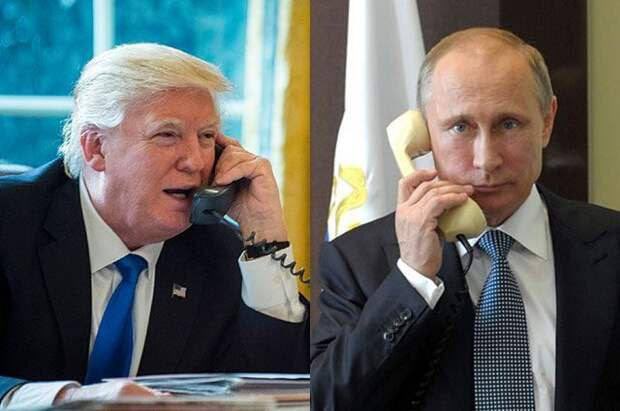
More on this story: Russia’s Defiance: The Aftermath of Trump-Putin Phone Talks
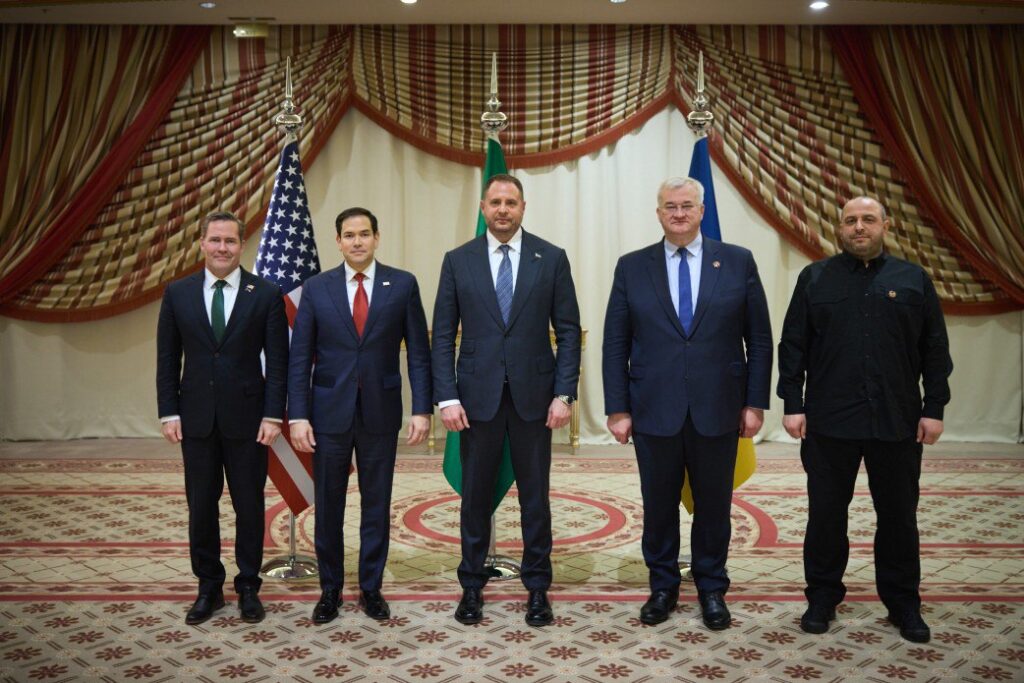
More on this story: Russia’s Road to a Renewed Offensive: Timeline and Strategic Challenges”
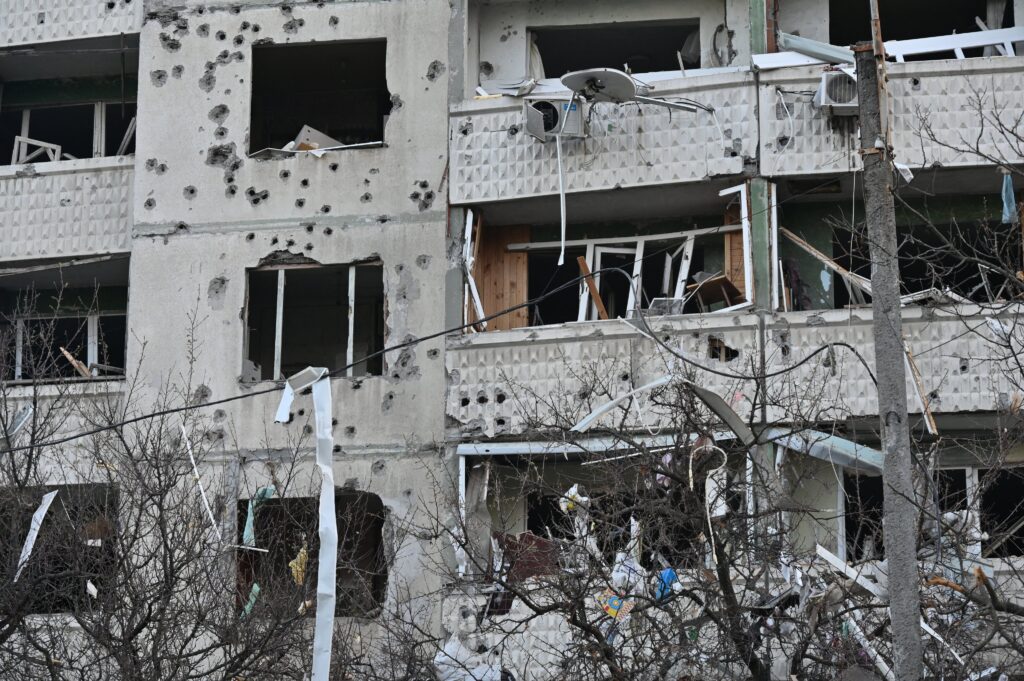
More on this story: The Broken Easter Ceasefire: Russia’s Rejection of Restraint in Ukraine
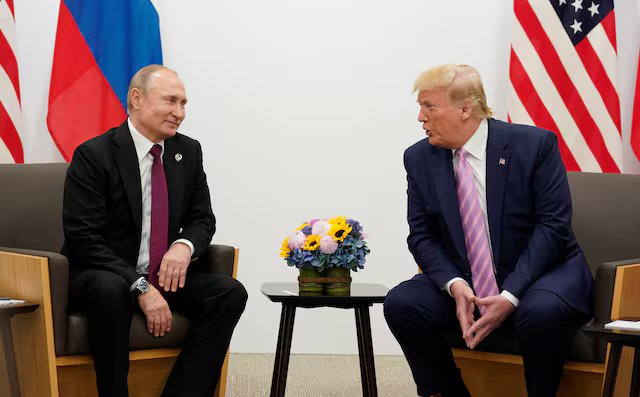
More on this story: Kremlin’s Strategy: Leveraging Diplomacy to Justify the Next Phase in Ukraine


